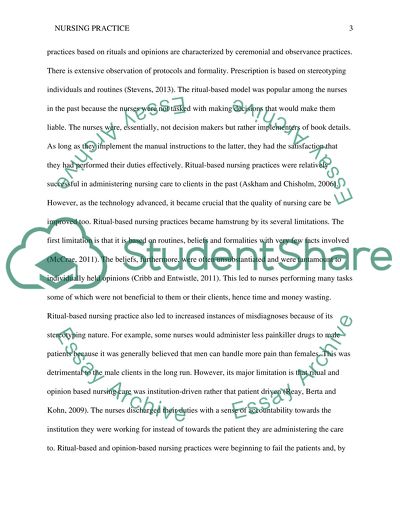Cite this document
(“Critically analyse why nursing care of care of patients depends upon Essay”, n.d.)
Retrieved from https://studentshare.org/nursing/1642010-critically-analyse-why-nursing-care-of-care-of-patients-depends-upon-evidence-from-research-and-is-not-so-much-reliant-upon-opinion-and-ritual
Retrieved from https://studentshare.org/nursing/1642010-critically-analyse-why-nursing-care-of-care-of-patients-depends-upon-evidence-from-research-and-is-not-so-much-reliant-upon-opinion-and-ritual
(Critically Analyse Why Nursing Care of Care of Patients Depends Upon Essay)
https://studentshare.org/nursing/1642010-critically-analyse-why-nursing-care-of-care-of-patients-depends-upon-evidence-from-research-and-is-not-so-much-reliant-upon-opinion-and-ritual.
https://studentshare.org/nursing/1642010-critically-analyse-why-nursing-care-of-care-of-patients-depends-upon-evidence-from-research-and-is-not-so-much-reliant-upon-opinion-and-ritual.
“Critically Analyse Why Nursing Care of Care of Patients Depends Upon Essay”, n.d. https://studentshare.org/nursing/1642010-critically-analyse-why-nursing-care-of-care-of-patients-depends-upon-evidence-from-research-and-is-not-so-much-reliant-upon-opinion-and-ritual.


